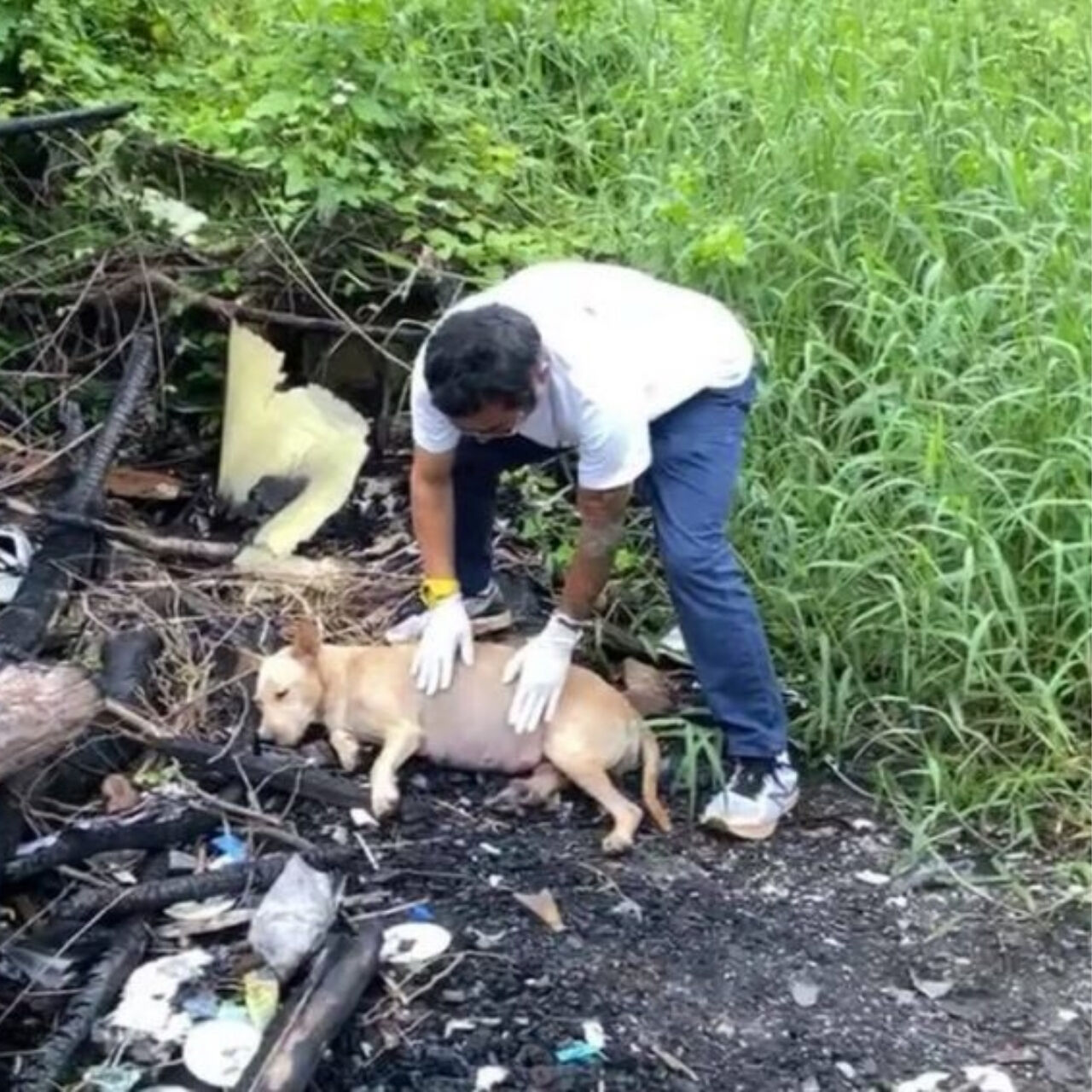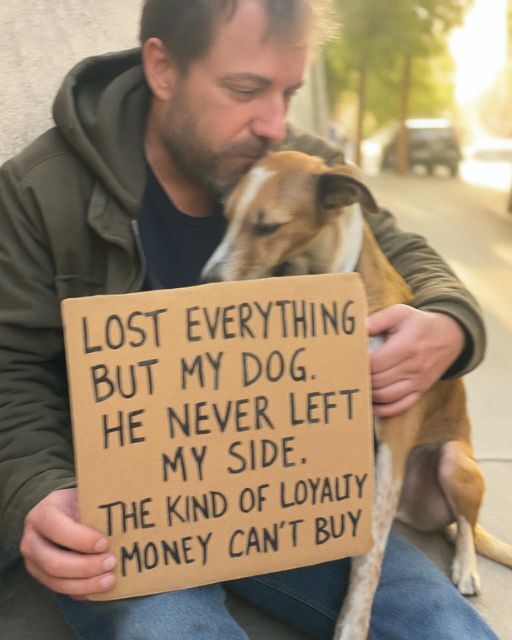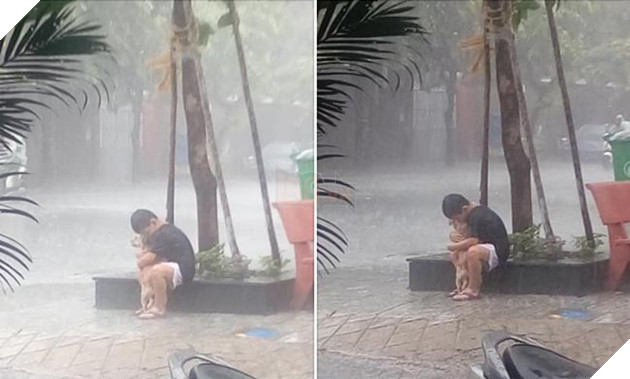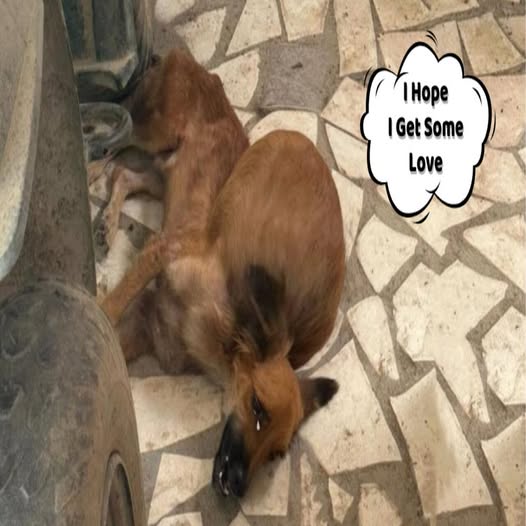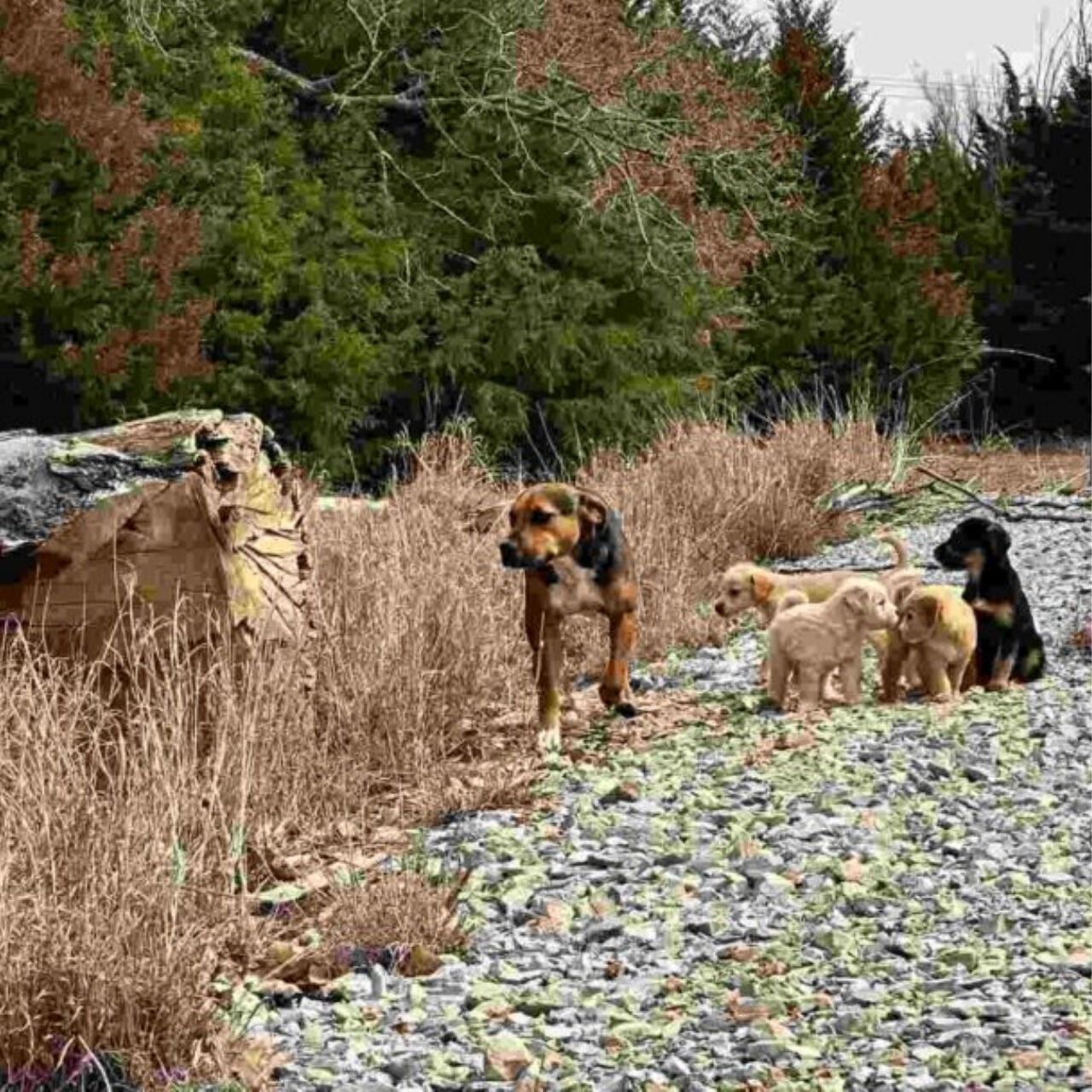The wildfire raged across the valley, a monstrous wall of flame consuming everything in its path. It was the kind of blaze that left even the most seasoned crews shaken, where the sound of crackling timber was deafening and the smell of smoke clung to every breath. Orders had been clear: it was too dangerous, and lives could not be risked for what was already lost. Yet in the midst of chaos, as the firefighters pulled back, a sound pierced through the roar of the fire. It was faint at first, almost drowned out by the inferno, but unmistakable—a desperate cry. It wasn’t human, but the raw, pleading tone carried the same urgency. A baby moose, cornered between flaming trees, its fragile legs trembling as it tried to escape a fate it couldn’t understand.
The firefighter who heard it felt something shift inside him. He had been trained for years to follow protocol, to obey his chief, and to prioritize his crew’s safety above all else. But in that moment, instinct overruled training. Without hesitation, he broke ranks. The others shouted after him, their voices lost in the smoke, but he ran straight toward the cries. The fire licked at his boots, sparks stung his face, and the heat pressed down like a giant’s hand trying to smother him. Still, he pressed forward. The calf was tangled in fallen branches, its wide eyes glazed with terror. With no time to spare, he tore off his coat, wrapped the trembling body inside, and lifted it into his arms. The weight was nothing compared to the weight of the decision he had just made. As he turned back, the fire closed in, trees collapsing behind him like thunder. He sprinted through the smoke, lungs burning, vision blurring, but finally he burst through to the line where his crew had gathered.
The crowd erupted in cheers. For a moment, the terror of the wildfire was forgotten as every eye focused on the sight of the firefighter cradling the calf like a newborn. But where the others saw a miracle, his chief saw disobedience. His jaw clenched, and his voice, sharp with anger, cut through the celebration. Orders had been given. They were not to risk their lives unnecessarily. He had defied that, jeopardizing himself and potentially the safety of the team. And yet, the calf was alive, its cries now softened into whimpers of exhaustion as it nestled against the soot-streaked coat.
Later that night, when the fire’s glow still painted the horizon red and the air was thick with ash, the firefighter sat alone. The adrenaline had worn off, leaving only the heavy silence of reflection. He knew the cost of what he had done. Disobeying a direct order meant disciplinary action at best, and termination at worst. Years of service, of training, of sacrifice, could all be erased in the name of protocol. But when he closed his eyes, he didn’t see reprimands or paperwork; he saw the frightened eyes of a helpless creature and the relief that came when it was safe in his arms. To him, that moment outweighed every punishment.
The story of his act spread quickly. Someone had captured a photo of him carrying the calf, smoke swirling around his figure like a halo of fire. Within hours, it was shared across local networks, and soon, the world was talking about the firefighter who had chosen compassion over orders. Strangers online wrote messages of gratitude, calling him a hero. Others debated the risks he had taken, pointing out that one life saved could have come at the cost of another if things had gone differently. But for every critic, there were dozens who praised his courage and his heart.
The calf, taken to a wildlife rescue center, became a symbol of resilience. Veterinarians worked tirelessly to ensure its burns healed, feeding it carefully and watching as it grew stronger day by day. They named it a reminder of survival, of second chances. The firefighter visited often, each time greeted by the sight of the animal that had, in many ways, changed his life. The bond between them was unspoken but undeniable. The calf recognized him, nudging its head against his chest, as if remembering the warmth of his coat when the world was on fire.
Back at the fire station, tension lingered. The chief remained firm, unwilling to overlook insubordination, yet he was not blind to the impact of what had happened. The department was flooded with letters, some from children drawing pictures of the firefighter and the moose, others from wildlife advocates thanking him for valuing life in all its forms. Even local officials weighed in, some quietly suggesting that punishing an act of compassion would do more harm to public trust than good. The firefighter’s colleagues, though bound by the chain of command, made their support clear in subtle ways—a pat on the back, a thermos of coffee left by his locker, or a simple nod of respect.
As the days passed, the wildfire was finally contained. Nature had suffered, leaving scars across the land, but life, stubborn and enduring, began to return. The baby moose, once fragile and near death, now stood on steadier legs, venturing into the sanctuary’s fields with cautious curiosity. The firefighter, too, carried scars, not of the skin but of the heart. He had seen how thin the line was between duty and humanity, and he had chosen the latter.
The decision haunted him at times. He wondered if he had set a dangerous precedent, if someday another firefighter might take a similar risk and pay with their life. Yet he also believed that rules existed to protect, not to strip away the essence of why they had chosen this calling. Firefighters didn’t join the ranks for glory or protocol alone—they joined because they valued life. Sometimes that life wasn’t human, but it was no less deserving of a chance.
Months later, when the calf was strong enough to be released back into the wild, the firefighter was there. He watched as the animal, once cradled in his arms, bounded into the forest with a grace that belied its early brush with death. For a long time he stood there, the wind rustling through the trees, carrying with it the faint echo of that first desperate cry. It was no longer a sound of fear, but a memory of survival.
Though he never sought recognition, his story continued to ripple outward. People who had never thought twice about wildfires now spoke about them differently, not just as forces of destruction but as moments where humanity could shine through. Parents told their children the story of the firefighter who listened to a cry no one else would, teaching them that bravery wasn’t always about following orders, but sometimes about breaking them for the right reasons.
And so, even as the weight of potential consequences hung over him, he carried no regret. Jobs could be lost, reputations could be questioned, but the life of that calf was beyond measure. It was proof that in the darkest, most dangerous places, compassion could still take root. The fire had threatened to consume everything, but from its ashes rose a story that reminded people of the power of choosing kindness, even when it came at great cost.
In the end, when asked if he would do it again, his answer was simple. He didn’t pause, didn’t calculate the risk, didn’t weigh the possible outcomes. He just said yes. Because for him, life—any life—was worth saving. And sometimes, that truth was worth more than any rulebook.

